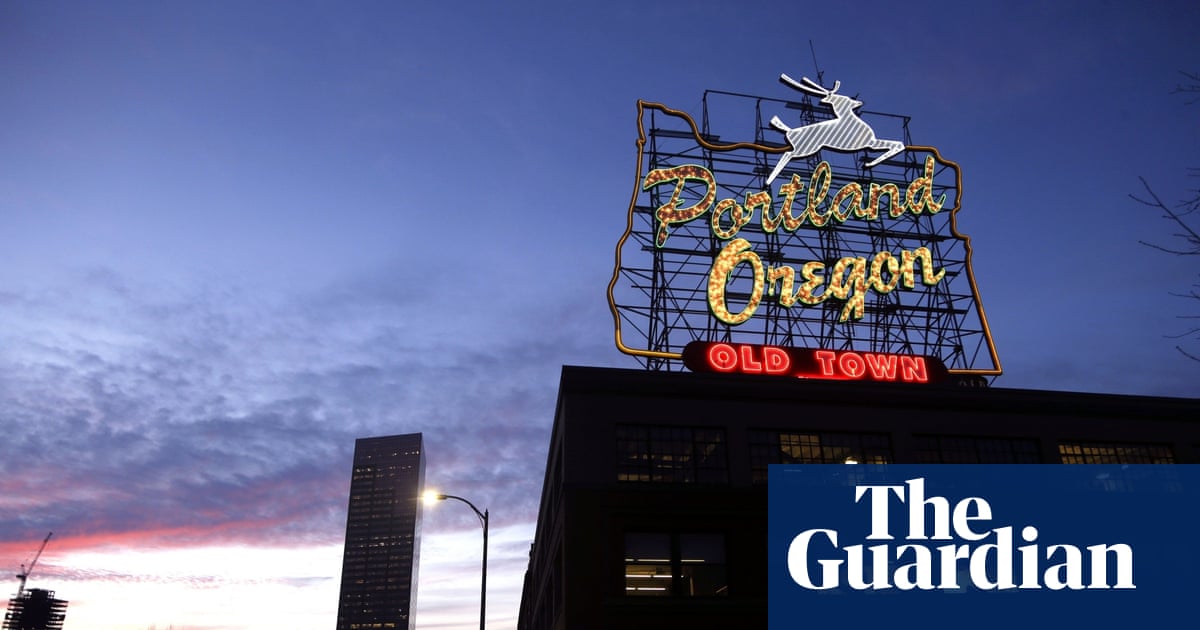When voters in Portland, Oregon, head to the polls next month, they will be tasked not only with selecting new leaders, but also the implementation of a monumental overhaul of the cityâs government.
Two years ago, residents moved to fundamentally alter their local government structure and adopted what experts have described as some of the most âexpansive voting reformsâ undertaken by a major US city in recent decades. Come November, the city will use ranked-choice voting to elect a mayor and a larger, more representative city council as Portland moves from a commission form of government to one overseen by a city administrator.
The shake-up comes after challenging years for Portland in which the city of 630,000 grappled with a declining downtown, rising homelessness, a fentanyl crisis, growing public drug use and the continued economic impacts of the pandemic years.
While some news coverage has portrayed the shift as Portlanders rejecting the cityâs historically progressive values, those involved with the project counter that residents are embracing democratic reforms that will lead to a more equitable government better equipped to solve the cityâs problems.
âIt was really clear that this system was, as operated, very inequitable,â said Jenny Lee, managing director of Building Power for Communities of Color, a non-profit that was a key proponent of the effort.
âAnd the challenges in governing are going to be felt the most by those who already have been marginalized in our political system.â
Now the city waits to see what the âonce-in-a-generationâ change will mean for its future.
Since 1913, Portland has used a commission form of government. The commission consisted of five people elected citywide and who were responsible for passing policies and also acting as administrators in charge of city departments.
The system was briefly popular in other major US cities, but then largely abandoned, said Richard Clucas, a political science professor at Portland State University.
âMost cities who adopted that form of government realized there were problems with it,â he said. âSomeone may be good as a legislator but it doesnât make them good as an administrator.â
And Portlandâs system had long failed to adequately represent different demographics in the city, Lee said. The cityâs elected officials historically have been white men from more affluent areas where residents are more likely to have a higher income and own their homes, according to the Sightline Institute. In 2017, only two people of color had ever been elected to the city council.
Under the charter system, simple decisions â such as where to put a bike lane â were politicized, said Shoshanah Oppenheim, the charter transition project manager.
âIt was based on the political tide,â said Oppenheim, who is also a senior adviser in the city administratorâs office.
For more than a century, Portlanders rejected attempts to reform the commission system, but that changed when the 10-year review of the city charter coincided with upheaval and challenges of the pandemic years.
The pandemic exacerbated the existing limitations of the cityâs form of government, according to a report from Harvardâs Ash Center for Democratic Governance and Innovation chronicling Portlandâs reforms.
Meanwhile, Portland was the site of widespread racial justice protests and an ensuing federal crackdown, the cityâs economic recovery from the pandemic was slow, and residents grew increasingly disillusioned with their leadersâ ability to make meaningful progress tackling homelessness and drug abuse.
Those challenges created an opportunity to have meaningful conversations about elections and government, Lee said.
Clucas echoed that sentiment: âI think the public was looking and happy to take on some sort of change.â
after newsletter promotion
Community leaders had spent years educating themselves about electoral reform, and saw an opportunity to create change in the city, the report stated.
With support from community organizations and local activists, the commission brought a measure before voters that would make key changes to the cityâs system, allowing voters to rank local candidates in order of preference, expand the city council from five to 12 representatives elected from four newly created districts, and move to a system of government overseen by a professional city administrator.
Despite criticism about the complexity of the measure and opposition from political leaders and the business community, 58% of voters approved the package of reforms proposed by the commission.
Although the timing coincided with major changes and social issues, Lee said the reforms were not reactionary and instead an example of Portland being willing to try new things, which ties into Oregonâs long history of democratic reforms aimed at making government more participatory.
âIt was a message about change, but it was definitely a hopeful one,â she said. âIt was always about these changes will make our government more effective and equitable.â
The city has spent the last two years preparing for a project unlike anything Portland has seen before,Oppenheim said. âWe had a really short timeline ⦠Itâs been an all-hands-on-deck approach,â she said. âThere is no playbook. We are making it up as we go along.â
Next month, voters will decided among more than 100 candidates for 12 council seats and 19 candidates for mayor. A recent poll from the Oregonian suggested a once-longshot candidate, whose campaign has focused on ending homelessness, is well positioned to win.
In a poll of roughly 300 voters from early October, before election packets were sent out, two-thirds responded that they understood how voting works very well or somewhat well. People tend to understand the system right away given that they rank things every day, Oppenheim said.
The city has also developed a voter education program to inform residents about the changes and trained operators on its information line how to explain ranked-choice voting.
The hope is that voters will feel the increased power of their vote, Lee said. âEvery vote has a lot of power. Your constituentsâ voices really matter. Their second- and third-choice rankings actually really matter.â
After the election, the other major test comes next year when Portlandâs new government takes the reins. âWe want to be ready on day one so all the city business can continue,â Oppenheim said.
âPortlanders have huge expectations for change and we have a once-in-a-generation opportunity to do things better,â Oppenheim said. âThey want a more representative government. We have it in our power to deliver that.â



